*I posted all the recordings I could find on Youtube that go with this transcription book at the bottom of this review………Enjoy!
It’s with a bit of embarrassment that I admit that in the past, I have never really been a big fan of Stan Getz. I remember hearing his name when I was younger and checking out some of his recordings but what can I say? Those were my Michael Brecker and Bob Berg years. I couldn’t get enough of those guys. Their tones sounded energetic, raw, focused and in your face. Stan Getz sounded mellow, mature and laid back to me. I just never got into him back then. I remember feeling the same way about Joe Lovano, Harry Allen, Warne Marsh and Rich Perry when I first heard them. It was just a different tone than what I preferred back then.
As we mature and grow as musicians, our ears and minds can open up to players in a fresh way sometimes. I remember continuing to check out Stan Getz as well as the other players I listed above through the years and starting to appreciate their greatness more and more. What I once didn’t like about their sounds, was what was now attracting me to their playing. They were different, unique, one of a kind and special.
In the last decade, I started listening to more Stan Getz and now realize what I was missing out on all those years. When I heard that Hal Leonard was releasing a Stan Getz Omnibook I had to check it out. I’ve now spent about a month with it and after checking out these recordings and solos I have to say “Wow! Stan Getz was unbelievable!”
A couple days ago, I went through the whole book from cover to cover. Most of the recordings can be found on Youtube these days which is pretty cool. I spent about four hours just listening to every recording and following along with the transcriptions and I can’t tell you how many times I just felt awe and shock by what I just heard and saw in the transcriptions.
The Stan Getz Omnibook
Here is what I found amazing about Stan Getz while going through this process: His commitment to creativity and the melodic line. What does that mean? Well, as I went through the 54 transcriptions, I was amazed by the multitude of creative melodic ideas within them. When you go through a book of transcriptions by one artist, you usually will see many repeated concepts. Melodic ideas being used a number of times or even the same lines being used over the same chords a number of times. Although I did see a few instances of this, it was much less than I usually see with an artist.
What I did see, was a commitment to melodic ideas. I saw this over and over again in every solo. For example, most players will play over a Db7 chord by pulling from their resource of ideas that they have indexed in their brain and string these ideas together so they sound connected or related. Rather than doing this, I get the sense that Stan Getz is thinking of a melodic idea and playing that idea through the changes. He’s molding it and changing it to work and fit the harmonic context. It’s not about regurgitating ideas he has in his head but coming up with something new and fresh. In my opinion, this is much harder than just playing different variation of what you already know.
At times, you hear him stumble a little bit as he tries an idea over the changes but then he regains his balance again and it’s like watching a master walking on the tightrope. We are excited and thrilled and have no idea how they are making it look so easy.
The Stan Getz Omnibook
I can honestly say that my appreciation for Stan Getz has sky rocketed as I worked through this Omnibook. To me, it’s a creative thesaurus to open up your minds to possibilities. Although there are “licks” you can grab from this book, if that is all you do, then you are missing the bigger picture. It’s more about seeing how Stan Getz transcends the chord progressions and floats above them. How he breaks free of the chains most of us are enslaved by. The chains that make us play certain lines or certain rhythms over a certain ii-V-I progression. The chains that make us feel like we have no choice but to play that thing we always play on the B section instead of living on the edge and maybe messing up.
When I listen to Stan Getz, I hear a man who has escaped those chains. I get the sense that every solo is a moment of creative freedom that breaks those chains and leaves them lying in the dirt far below.
The other thing I love about Stan Getz is that I don’t hear “ego” in his playing. I know nothing about him personally but I love that his solos weave in and out of complexity and simplicity over and over. With some players, I get the sense that they are always trying to impress. Either with how fast they can play, with how high they can play, with how complex they can play……. I feel like Stan Getz could care less about any of that while he is playing. Maybe I am wrong, but as I listen to these solos, it seems to be all about the moment and the music. Nothing else! The moment and the music……..To me, there is no more joyous and elevating concept. The moment meaning “now” “something new” “something fresh” etc…….. The music meaning “now” “what can I create” “what new direction can I go” etc……. I love this!! I can’t get enough of it!
When I hear him get complex and more intricate with his lines (which he does plenty of in these solos), it’s not like he’s saying “Listen to this really cool complex idea I worked out before hand” but rather, he seems to be saying “I just had this creative idea of something I can try with this solo, let’s see if I can do it……..”. That’s how it seems to me.
The Stan Getz Omnibook
The picture above is the inside page of the table of contents of the Stan Getz Omnibook. The *stars mean that I have those recordings in my collection already. A “Y” before the title means that the recording is on Youtube somewhere. A question mark or nothing means I couldn’t find that recording anywhere. You can see that there are only three of the 54 that I couldn’t find. The circled song means that on first listen I was completely blown away and these were the first three transcriptions I would work on. Billie’s Bounce, I want to be Happy and Yardbird Suite just had so many lines and ideas that made me jump out of my chair and yell “Oh Yeah!!”
There are so many other moments I could write about though. The melodic ideas in Stella blew me away. The rhythmic playfulness in One Note Samba that made him play more on the edge and take chances when he could have played it much safer. His use of triplets in Summertime is amazing. How Yardbird Suite is so burnin’ but balanced with a laid back relaxed feel that is so rare in a burnin’ solo. So much more I could write about………..not to mention all the Bossa Novas classics in this book……Beautiful!!!
As a side note, I want to say that most of the book has the melodies included in the transcription with the exception of “Very Early” which just has the solo. I write this because it confused me and I didn’t think the Youtube clip was the right recording because the melody was missing from the transcription.
I only found a few mistakes in the book by just looking at the transcriptions and listening and wouldn’t you know those were in the very last transcription in the book. Yesterdays (also a killer solo) has a mistake on the 4th line, 3rd measure where the D should be an F# and in the 5th line, 2nd measure the DCDC eighth notes should be DCDD. Other than that, I didn’t really notice any other mistakes in the book. Not saying there are no others but my impression is that this book is very accurate from looking through it and playing the pages I have so far.
I see no acknowledgement or credit to whomever transcribed these solos. This person deserves some recognition and praise in my opinion. The Stan Getz Omnibook translates to years of work so whomever this anonymous person is I say “Thank You”.
One aspect of the Stan Getz Omnibook that is incredibly impressive is the chord notation. The person that wrote these transcription was incredibly specific about the chords being played. I haven’t tried to check their accuracy but I am assuming they are correct when every chorus of a tune has slightly altered chords. For example, if you look at the first tune in the book “Airegin”, the first chorus has the first three chords as Gm(add9)/D7#5(#9)/Gm13(maj7). The second chorus has the first three chords as Gm7/D7b9/Gm7. My point is that the transcriber seems to go into as much detail with the chords as with the transcription which is cool to see especially with some of the chord substitutions used in some of these tunes (Check out Autumn Leaves with F#-7 substituted for F Maj7 at many points in the tune. Also check out Softly, as in a Morning Sunrise that is usually just D-/E-7(b5) A7(b9)/D-. In this transcription every alteration and voicing is notated in detail…..) I’m assuming this transcriber has some monster ears………..
Great job by Hal Leonard in creating another great Omnibook in their collection that includes John Coltrane, Miles Davis, Cannonball Adderley, Wynton Marsalis, Joe Pass, Charlie Parker and now Stan Getz. You can get the book from Amazon.
Stan Getz Omnibook Bb Instruments
Stan Getz Omnibook Eb Instruments
Stan Getz Omnibook Concert Instruments
If you end up getting the Stan Getz Omnibook please feel free to come back and share your thoughts and comments with all of us below. If you have other thoughts about Stan Getz I would love to hear them also. I found this great article online with some interesting background on Stan Getz from the New York Times if you are interested. I wish I appreciated him more when I was younger, he is deeply missed. Now I have to go practice…………. Steve
Links to all the Tunes I could find on Youtube (If any of these links do not work, please let me know so I can fix the links. Thanks, Steve)
*Not Found
*Not Found
*Not Found
*Not Found
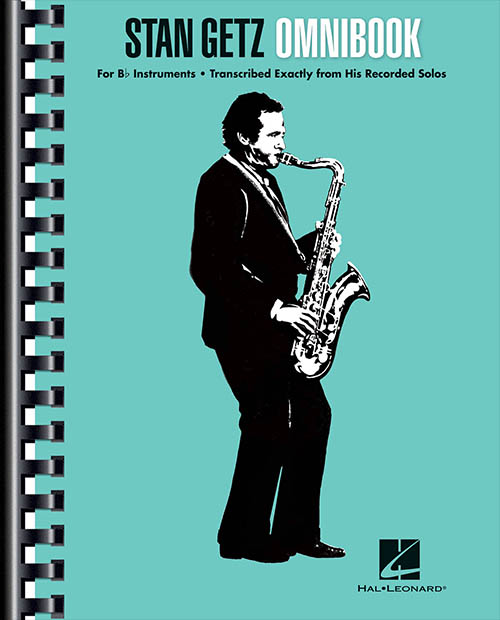
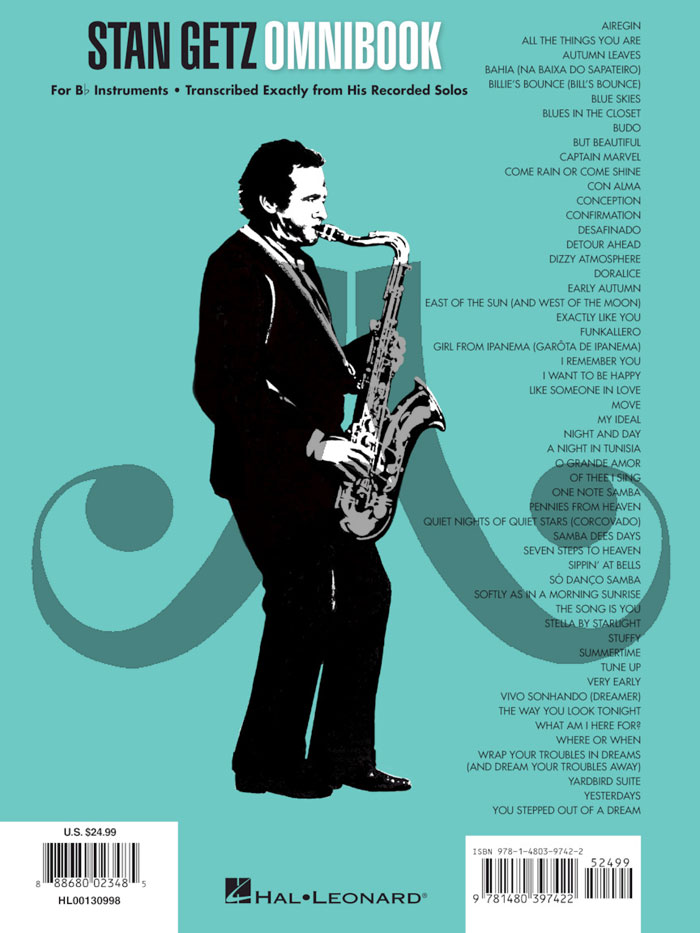
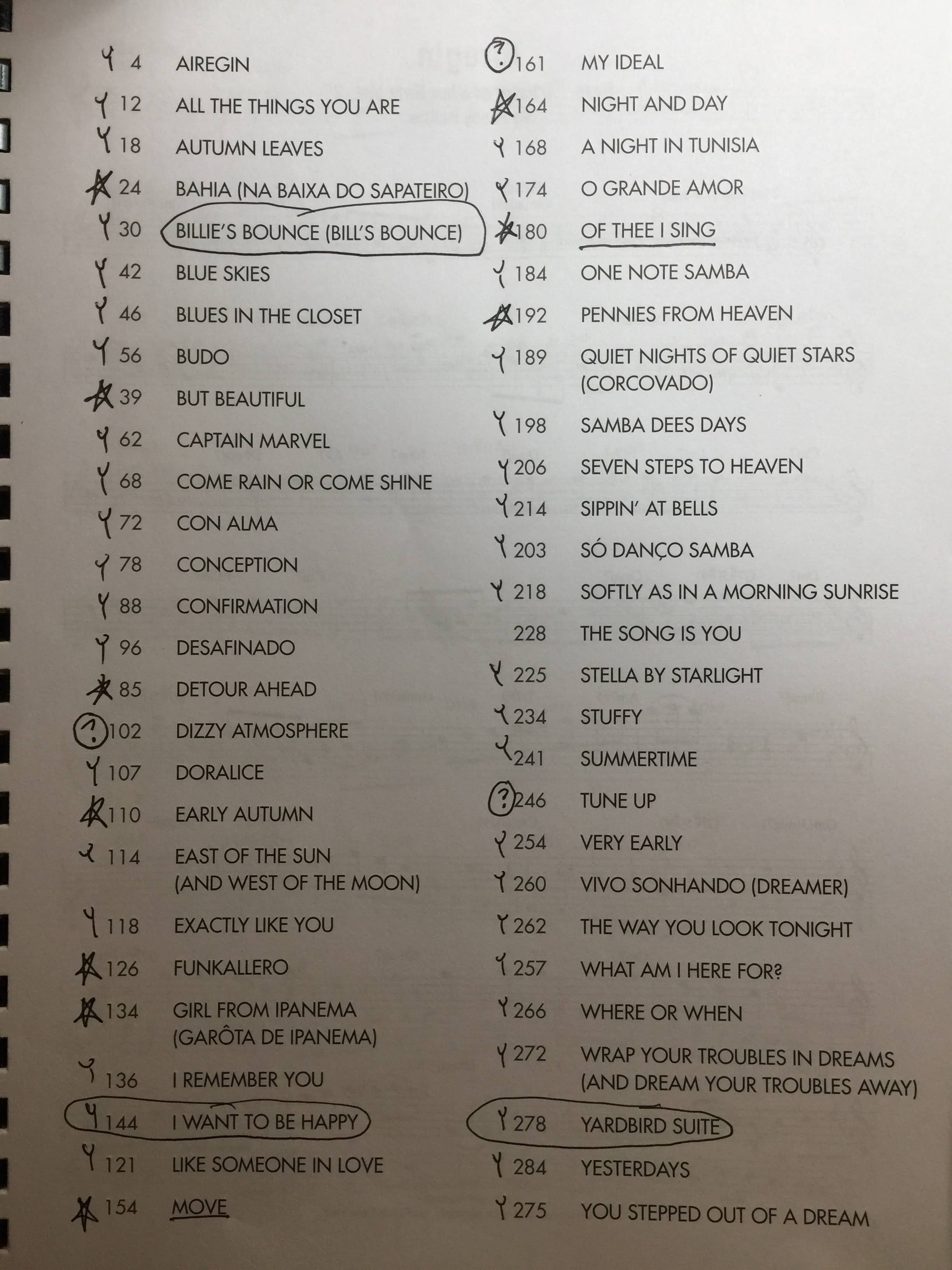
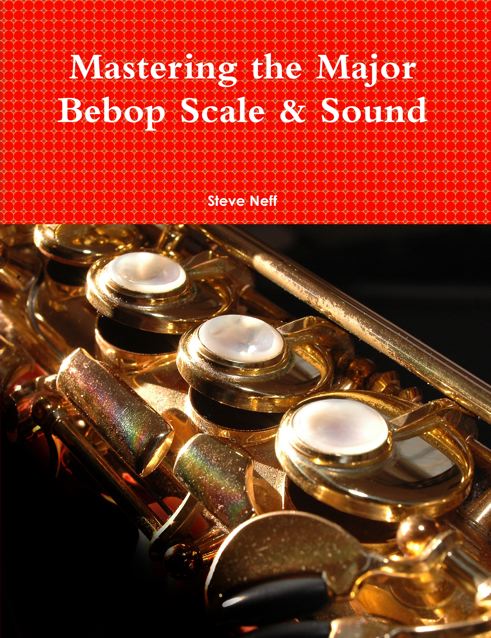

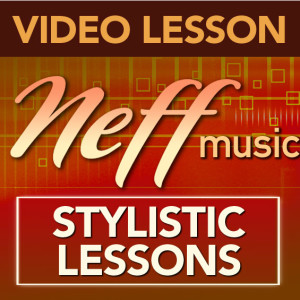
Hi Steve,
I am 66 and have been following Stand Getz and trying to play like him since my early 20’s. Before Cds I had 70 of his vinyl albums I led a semi pro big band in the 80’s The young guys in that band used to say Getz only plays Bossas. I used to look at them and shake my head. Getz had a perfect pitch ear. I have found through listening and transcriptions that he would play incredible lines based on the tone centre rather than say the 2/5/1. The lines were so good that they could be construed as either or. Joy Spring from The Dolphin Album has these lines.
Well written Ross. He is one of the few I have seen use diatonic patterns shapes effectively also. In the book I saw a few times where he used them and he just changed the line as it went through the chords. I am also amazed when he hits tension notes. One time he lands on a B on a E-7b5 chord on Softly as a Morning Sunrise I believe. I would think that note would sound horrible but he holds it for a couple beats and then gets off it and it sounds great. There are moments in every solo like that. Amazing player!
Hi Steve:
I have been a follower of Getz for many decades. His playing evolved from the West Coast days up until shortly before he passed away, as evidenced by the late recordings with Kenny Barron. I have earlier transcriptions, also published by Hal Leonard, done by Greg Fishman. They are not redundant (with very few exceptions with the Omnibook). The first in the series by Greg just titled Stan Getz, includes some seminal solos like Strike up the Band and Tempus Fugit. But, for me, the biggest treat in that book are transcriptions of Body and Soul .. one from 1952 and one from 1981 … I had memorized them both.. just magical… thanks for the review of the Omnibook… I ordered it today!!!
My experience is the opposite of Steve’s I am 70. When I heard Stan’s Focus and Jazz Samba albums when I was around 15, my world changed. I could not believe the beauty in his playing, always melodic playing slow or fast, playing Bebop, Swing, all genres. I could not get enough of Stan’s playing well into my 50’s. I tried to learn how to play/sound like him but never possible. I only recognized the genius of players like Michael Brecker in my 60’s. When I saw Getz in person, I was transfixed. I could not believe his sound was so beautiful and powerful not even playing into the mic, and his ideas were so creative chorus after chorus playing so many live. An AMAZING talent that for me was a one in a lifetime genius, not on the scale of Parker, Coltrane but in that league. Checkout Coltrane and Getz playing together on YouTube, HISTORIC!
Stan Getz was approached first for doing the music for the movie “Alfie”. Getz turned it down because he didn’t think the money was enough. Sonny Rollins was then approached next and he accepted the offer and did a great job of it. You can find it on YouTube and is worth a listen. I’ve enjoyed a lot of tenor players, Stan Getz included, but Sonny Rollins was probably always my favorite. He rarely repeats himself rather he seems to be what you might call a “through” player, that is he starts a line and just “sees’ where it goes, he was never a lick based player. So I think most everything you said about Getz (which is a very enjoyable read and excellent analysis) could be said about Rollins. Rollins also makes free use of the major seventh over dominant seven chords which you’ll notice if you study his solos.
Some people have accused Stan Getz of stealing Latin music which is absurd. I believe that Jobim studied with Jerry Mulligan. And in fact Stan Kenton was interested in Latin rhythms as early as 1947. Dizzy Gillespie was interested in Cuban music for a time and nobody accused him of stealing Cuban music. Even Charlie Parker recorded with Latin bands briefly. I don’t know where people get the idea that Stan Getz “stole” Latin music but it’s ridiculous.
When I saw Getz play he had a huge sound. If you watched him closely you could see he took huge breaths, it’s all about air. He had perfect technique, no fingers flying of the keys like you see surprisingly often even with really good players. I’ve always liked Getz and I really enjoyed reading what you had to say about him, all of it right on the money I think.
Rob, Have you seen this video. Stan was playing on a 4 1/2 reed on this gig in the story. He must have had some massive air!!
https://youtu.be/mgbBX9gU-kg
Would not it be all this palette of Getz colors the masterpiece transcribed by Greg Fishman? Would not surprise me !!!
Marcio, No, someone asked Greg on Facebook and he said it wasn’t his work.
Wow … interesting … we have a masked killer !!
Rob Payne is so right about Sonny Rollins. I studied the solos of Rollins, Getz, Dexter Gordon, Coltrane, etc and without a doubt Rollins was not a riff player, he was about creating something new or die trying. I sayw Rollins twice in NYC jazz clubs. The first time I was amazed how he did not live up to his records. The second time, he was so AMAZING!! I admire Rollins commitment to creativity or bust. I was so much happier with my image of these sax MASTERS when I did not delve into their personal life, Getz treated people poorly and his family worse. Sonny Rollins was a complete delight to talk to and I found a wonderful person. Quick experience: I went to see Getz at the NYC new uptown Half Note (expensive). Getz asked the audience” is there a Dan Rosati here?” That is my name. I was so in shock he said my name. Gets then said: “How did you get here?” I turned to my wife because I forgot everything with my idol talking to me. My delay sparked Getz to say to me “Are you an idiot?” I said we drove a car. A cab driver brought back a wallet of a customer from the club who had my name. Getz told me to sit down and proceeded to play the total opposite of that exchange. I learned to just appreciate the greatness of their music.
Dan, Maybe Hal Leonard will do a Sonny Rollins transcription book next………
Steve, Don’t see the video but yes, he played hard reeds for sure, I think that’s part of his concept of how he wanted his sound to be. A long time ago I saw a picture of Stan who was apparently getting ready to play at a concert or a recording session, don’t remember which, but there were several boxes of reeds and reeds themselves strewn across the floor which looked like he was looking for a new reed to play, and I remember they were 4’s or 4 and a halves as you say because you could see it on one of the boxes. It’s interesting how a lot of the great players of the past played on mouthpieces with small tip openings, it’s kind of the opposite of what I used to think they used. When I first began to play I thought, yeah, man, big tip openings! Thought that would make for a big sound but I’ve gravitated towards smaller tip openings over time. But yeah, he had massive air for sure. Keep up the great writing, Steve. I’m always interested in what you have to say.
Dan Rosati, That’s an unfortunate experience to be sure. I’d have been embarrassed by that, but you know it’s probably the effect of the drug abuse on Stan Getz. I think once he got off the heroine and booze he was a different person. In his last years when he was clean he taught over at Stanford University and from what I heard he was really into teaching, he enjoyed it. That’s one of the tragedies of the jazz era, drug and drinking really too their toll. Sometimes I wonder how much better some of these people could have played without the addictions.
Rob, Sorry. I forgot the link. I just added it.
Thanks, Steve. That’s a great story. I always enjoy stuff like that. And isn’t that just how it is? At some point in our life we hear these people for the first time and we go wow! I want to do that too! And sure, the bread and butter stuff is something we all have to do (even Sonny Stitt had to do wedding gigs), but it’s the arts that makes life worthwhile.
Getz is amazing, this one is exceptional Getz burning, creative lines chorus after chorus,
coming from another dimension. Took me years just to hear his genius playing.
https://www.youtube.com/watch?v=ZMnm1Zuix3Q
greetz Marc
Thank you so much for that review Steve ! I have always been a Getz fan – in fact I am pretty sure that it was he who inspired me to take up the saxophone in the first place. I NEVER get tired of listening to him – in fact, to the contrary, i hear new and wonderful ideas and ways of executing things in his playing the more i listen – it is such an amazing level of lyricism and inventiveness – unfathomable ! i am really pleased that you have finally ‘gotten’ Getz – i am always a bit surprised and disappointed when professional players don’t find him awesome right off the bat – but i guess we all have certain gaps at certain points in our lives – and our tastes do change also i guess – (I am still waiting for that time that i fall in love with Coltrane’s playing….)
i have two of the recordings that you cannot seem to find (as per your songlist pic of the contents of the book) – they are ‘My Ideal’ and ‘Tune Up –
would you like them ? i can email or drop box them to you.
i am also battling still to find ‘the song is you’ and ‘dizzy atmosphere’ – if you or anyone else has these if would be great to post
and finally you said that ‘All the things you are’ and ‘Stuffy’ are on youtube somewhere – i cant seem to find those either – if you could send me those links it would be great. and thanks again for your amazing sax site.
Hi Peter,
I would love those two tunes. I will email you. I’ll have to look for those tunes to find where I found them on Youtube. Some I had to search for in depth……..Thanks, Steve
Indeed! Stan’s melodic, lyrical sense is unsurpassed. He is way way beyond the notion of licks. [He’s taught me to trust my melodic intuition!] Everything is fresh and in the moment. I’ve read critics say he couldn’t play fast, or outside. Stan could play fast with the best of them. But he only did it when it served the tune. He was never showy; always humble and true to the music. By all accounts, he was a difficult, unpredictable, drug addict; Zoot Sims said he was “a great bunch of guys”. Gary Burton, who quit his band, documented Stan’s difficulty as a person, but at the same time was completely enamored of his playing and musicality. As a therapist, and an amateur musician, I feel it’s one of those mysteries when someone can be so out of control in everyday life, and so utterly masterful, humble, and sane in their artistry. I love Bill Evans too, and their one concert album is jazz at its finest. Two exquisite players who played with humility and grace.
Hi Paul, You are so right! Interestingly enough, I realized the other day that I was still looking at the Stan Getz book every couple days but the Coltrane book hasn’t been touched since I did the review of it. Not to say Coltrane isn’t awesome but I find myself really attracted to the ideas and lines in the Stan Getz book. They are just different and more unexpected I guess. When I think Getz will go right he goes left, when I think he will go left he goes right. I’m just fascinated by how creative he was in the moment. Steve
Your words on Getz made me jump up with excitement in finding someone else who appreciated him the same way I do. I’ve dug him since my dad gave me his records when I was a pre-teen. I got to see him a couple times, luckily. Both in the 80’s. Sweet Rain is not only one of my fave records of him but of all records I have ever listened to. Just pure bliss and drama and emotion and colors…I could go on and on. And thanks, Marc, for the awesome link!
Very excited to have found your page. Thanks so much.
Thanks for visiting, Art. I’m glad you like the site. Steve
This is great, thanks Steve! When I was 17 and just starting to learn, my friend and I went to hear Stan at a now defunct supper club on 55th called Downstairs at Jimmy’s. Stan was our first inspiration as young sax players and we were excited to hear him live. The club was big and they sat us at a table way in the back of the room. Stan came out before the set and was talking to some people. We went up to him and said some dumb stuff like “how do you make it in jazz?” and he kind of blew us off and we went back to our table. On the way up to the stage, Stan walked around the entire back of the room and came over and sat down with us for a few minutes. He said “first you get good on your horn, then you go sit in with anyone that will let you and make connections.” I will never forget having Stan Getz’s MK VI laying on the little night club table right in front of me. Stan was playing with Dave Holland and Jack Dejohnnette who I would later meet living up in Woodstock. The show was great and we could not have been more inspired as young musicians! True story.
I was 10 years old when I heard the 45 rpm Rustic Hop and Cool Mix. I wanted to play tenor sax and have played ever since. Now age 80. His tone and even style to some degree changed considerably over the years but there was one thing that never changed. His dedication to creative melodic lines. It knocked me out as a child and still does after all of these years. I have lots of sax playing favorites however Getz was my inspiration for wanting to play in the first place and for persevering all of these years.
When I first heard Stan Getz I was blown away!!!! Stan’s Focus and Jazz Samba albums were my first introduction in the 1960’s. I was a young teenage musician and Stan was my major inspiration to switch from clarinet to tenor sax. As I searched for his earlier recordings, again, I was amazed by his bebop chops. He could do it all. From Stan, I realized there were other “Greats” that I adored like Dexter Gordon, Sonny Rollins, Lester Young, Joe Henderson but Stan… he was so lyrical and his tone and his expressiveness and ideas were unmatched. I saw Stan many times in concert and I could not believe a human could make a sax sound like that, and his Incredible ideas. His album with the Oscar Peterson trio…. TREMENDOUS!!!! His bebop playing on the album with Dizzy Gillespie and Sonny Stitt was so very impressive. I am 73 now, I still play and I recognize the greatness of Michael Brecker, Bob Berg, Chris Potter and many others bur Mr Getz……is impossible to duplicate. There will never be another Stan Getz!!! I realize there will never be another John Coltrane or Charlie Parker because so many say it. For some reason you don’t hear many say it about Stan. His video playing 2 songs with John Coltrane takes my breath away. Coltrane said about Stan: “Let’s face it–we’d all sound like that if we could.”
Love Stan and appreciate the Omnibook. I also made a YouTube playlist with the available Songs.
Find it here https://www.youtube.com/playlist?list=PL1kb81syW_KmHeSfWnu9BuMW1DAErMTIY
Hey Steve
I know this is an older post but I believe Greg Fishman was responsible for these transcriptions. I can ask him next time I see him around but I recall reading that on his website perhaps.